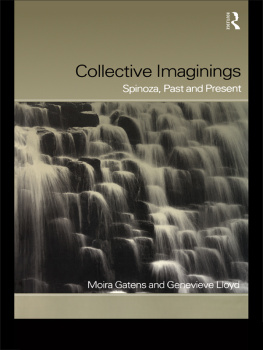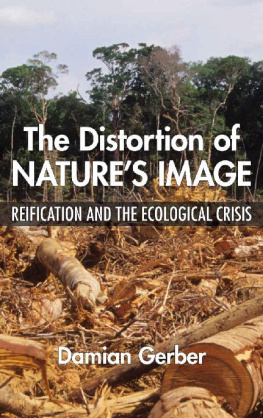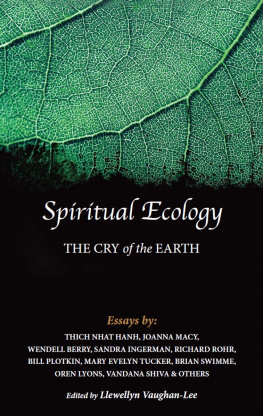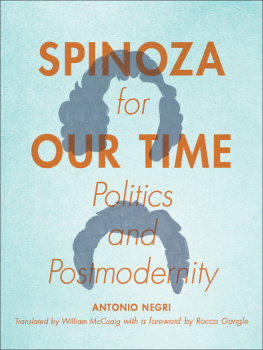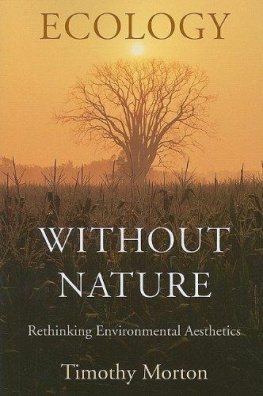Spinoza, Ecology and International Law
This book addresses the use of Benedict Spinozas philosophy in current attempts to elaborate an ecological basis for international environmental law. Because the question of environmental protection has not been satisfactory resolved, the legal debate concerning our responsibility for the environment has as evidenced in the recent UN report series Harmony with Nature come to invite calls for a new eco-centric, rather than anthropocentric, legal paradigm. In this respect, Spinoza appears as a key figure. He is one of the few philosophers in the history of western philosophy who cares, and writes extensively, about the roots of anthropocentrism; the core issue of contemporary normative debates in ecology. And in response to the rapidly developing ecological crisis, his work has become central to a re-thinking of the human relationship with nature. Addressing the contention that Spinozas ethics might provide a useful source for developing a new, eco-centred framework for environmental law, this book elaborates a more nuanced understanding of Spinozas philosophy. Spinoza cannot, it is argued here, simply be reduced to an eco-ethicist. That is: his metaphysics cannot be used as the basis of an essentially naturalised or extended human morality. At the same time, however, this book argues that the radicality of Spinozas naturalism nevertheless offers the possibility of developing a more adequate ecological basis for environmental law.
Moa De Lucia Dahlbeck is a postdoctoral researcher at the department of law at Gothenburg University and a member of the Spinoza Research Group (Grupo de Investigacin sobre Spinoza y el spinozismo) at the Faculty of Philosophy and Arts, Buenos Aires University.
Law, Justice and Ecology
Series editors
Anna Grear, Law School, Cardiff University, UK
For information about the series and details of previous and forthcomingtitles, see https://www.routledge.com/Law-Justice-and-Ecology/book-series/LAWJUSTECO
A GlassHouse Book
First published 2019
by Routledge
2 Park Square, Milton Park, Abingdon, Oxon OX14 4RN
and by Routledge
711 Third Avenue, New York, NY 10017
Routledge is an imprint of the Taylor & Francis Group, an informa business
2019 Moa De Lucia Dahlbeck
The right of Moa De Lucia Dahlbeck to be identified as author of this work has been asserted by her in accordance with sections 77 and 78 of the Copyright, Designs and Patents Act 1988.
All rights reserved. No part of this book may be reprinted or reproduced or utilised in any form or by any electronic, mechanical, or other means, now known or hereafter invented, including photocopying and recording, or in any information storage or retrieval system, without permission in writing from the publishers.
Trademark notice: Product or corporate names may be trademarks or registered trademarks, and are used only for identification and explanation without intent to infringe.
British Library Cataloguing-in-Publication Data
A catalogue record for this book is available from the British Library
Library of Congress Cataloging-in-Publication Data
Names: De Lucia Dahlbeck, Moa, 1981- author.
Title: Spinoza, ecology and international law radical naturalism in the face of the anthropocene / Moa De Lucia Dahlbeck.
Description: Abingdon, Oxon ; New York, NY : Routledge, 2019. | Series: Law, justice and ecology | Includes index.
Identifiers: LCCN 2018025590 | ISBN 9781138038684 (hbk)
Subjects: LCSH: Environmental law, InternationalPhilosophy. | International lawPhilosophy. | Spinoza, Benedictus de, 1632-1677Influence.
Classification: LCC K3585 .D4 2019 | DDC 344.04/6dc23
LC record available at https://lccn.loc.gov/2018025590
ISBN: 978-1-138-03868-4 (hbk)
ISBN: 978-1-315-17726-7 (ebk)
For Sofia and Ona
First and foremost I would like to thank my brother Johan Dahlbeck for your comments and questions on the work. Our conversations have been absolutely essential for developing my understanding of Spinoza and for finding the arguments about Spinoza and normativity presented in this book. I would also like to thank Gregor Noll and Lena Wahlberg. Their support during my doctoral studies encouraged me to deepen my interest in the metaphysics of international environmental law and to extend my studies into the realm of philosophy. Finally, I thank the wonderful scholars of the Spinoza Study Group at Buenos Aires University (Grupo de investigacin sobre Spinoza y el spinozismo) who all have contributed to my understanding and love of Spinozas writings.
Descartes, R.
The Geometrical Demonstration of Meditations on First Philosophy (Med); Principles of Philosophy (Principles); Discourse on the Method. References to Descartes works as found herein use the pagination of the Adam and Tannery volumes (AT), Oeuvres de Descartes, 11 vols. The citations give volume and page numbers. The Cottingham, Stoothoff, Murdoch and Kenny translation, The Philosophical Writings of Descartes, 3 vols, has been used; it shows the AT pagination in the margins.
Spinoza, B.
Ethics, Treatise on the Emendation of the Intellect (TdIE) and Letters (Ep.): 184; Theological-Political Treatise (TTP); Political Treatise (TP) Curley, E. (ed. and trans.) The Collected Works of Spinoza vols I and II. 1985 and 2016. Princeton, NJ: Princeton University Press.
Abbreviations for Spinozas works
TdIE Tractatus de Intellectus Emandatione [Treatise on the Emendation of the Intellect]
TP Tractatus Politicus [The Political Treatise]
TTP Tractatus Theologico-Politicus [The Theological-Political Treatise]
Ep. Epistolae [Letters]
Abbreviations for the geometrically ordered passages from Spinozas Ethics
E Ethics
a axiom
c corollary
d (before proposition) definition
d (after proposition) demonstration
L lemma
p proposition
post postulate
s scholium
exp explanation
Example: E2p7s = Part 2, Proposition 7, scholium.
References to the non-geometrically ordered passages from the Ethics, as well as references to the TdIE, TP and TTP are supplemented by references to Gebhardts edition Spinoza Opera (4 vols 1925. Heidelberg: Carl Winter), according to the following form:
G II/208/2530 = Gebhardt, Vol. 2, page 208, lines 2530.
How is the philosophy of a seventeenth century philosopher relevant for the contemporary legal project of navigating an ongoing global ecological crisis? This book is an attempt to answer that question by way of reconstructing a recent argument within instances of both legal and philosophical scholarship which implies the use of the philosophy of Benedict Spinoza (16321677) as a means to combat the practical consequences of the problem of nature. As will become evident shortly, contemporary commentators on Spinoza and nature/law argue that his philosophy is being vindicated by new scientific findings related to the Anthropocene. In this context, the Anthropocene is understood as the ultimate empirical and physical upshot of having constructed and adhered to a modern episteme which is both ontologically erroneous and providing epistemological support for an unlimited exploitation of nature. As such, the Anthropocene is highlighted as a natural phenomenon that demonstrates the relevance of Spinozas critique of Descartes metaphysical explanation of the human being as a dominion within a dominion and his own alternative explanation based on substance monism, philosophical naturalism and strict determinism.


